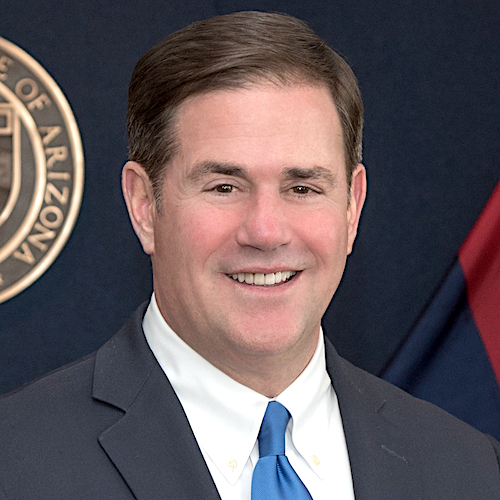

Arizona is dedicating $6.5 million to train 1,500 caregivers to work in long-term care, Gov. Doug Ducey (R) announced Thursday to coincide with Arizona Nurses Week.
“Caregivers and nursing professionals work to provide the best care possible to our elderly and disabled citizens. We need more of them, and I’m confident this funding will continue to ensure [that] Arizona is the best place for nurses,” Ducey stated in a proclamation.
The $6.5 million to train caregivers is being allocated from the federal American Rescue Plan Act, according to the governor.
The Arizona Health Care Association will use the funds to help recruit, train and retain certified nursing assistants and assisted living caregivers, David A. Voepel, CEO of the state affiliate of the American Health Care Association / National Center for Assisted Living, told the McKnight’s Business Daily.
“We’re starting a program called AHCA WORKS, which stands for Workforce, Outreach & Retention are Keys to Success,” Voepel said, adding that the program will be led by the state association’s director of workforce development, Jeffreys Barrett.
Voepel said that the program will be open to all licensed skilled nursing facilities and assisted living communities statewide.
“AHCA WORKS employer partners will have to meet key milestones in their development of their training programs, development of preceptors on staff and participation in monthly retention training as these are program requirements,” he said.
According to Voepel, AHCA WORKS will:
- Help facilities become employer partners and develop onsite training programs for CNAs and other caregivers.
- Model curriculum that a facility may use to seek approval from the Arizona State Board of Nursing (for CNAs in skilled nursing) or the NCIA Board (for caregivers in assisted living) for the development of an onsite frontline training program.
- Assist in the recruitment of CNAs and caregivers.
- Help develop a preceptor program and offer ongoing retention training.
“Facilities that are not able to adopt their own onsite training program still may participate as an employer partner and accept frontline recruits as long as they participate in the preceptor program and ongoing retention training,” he said.


